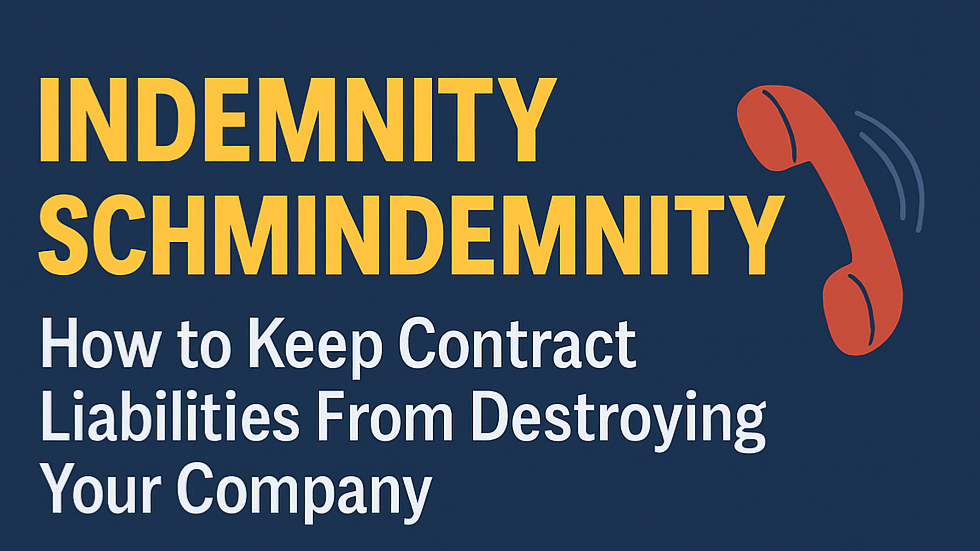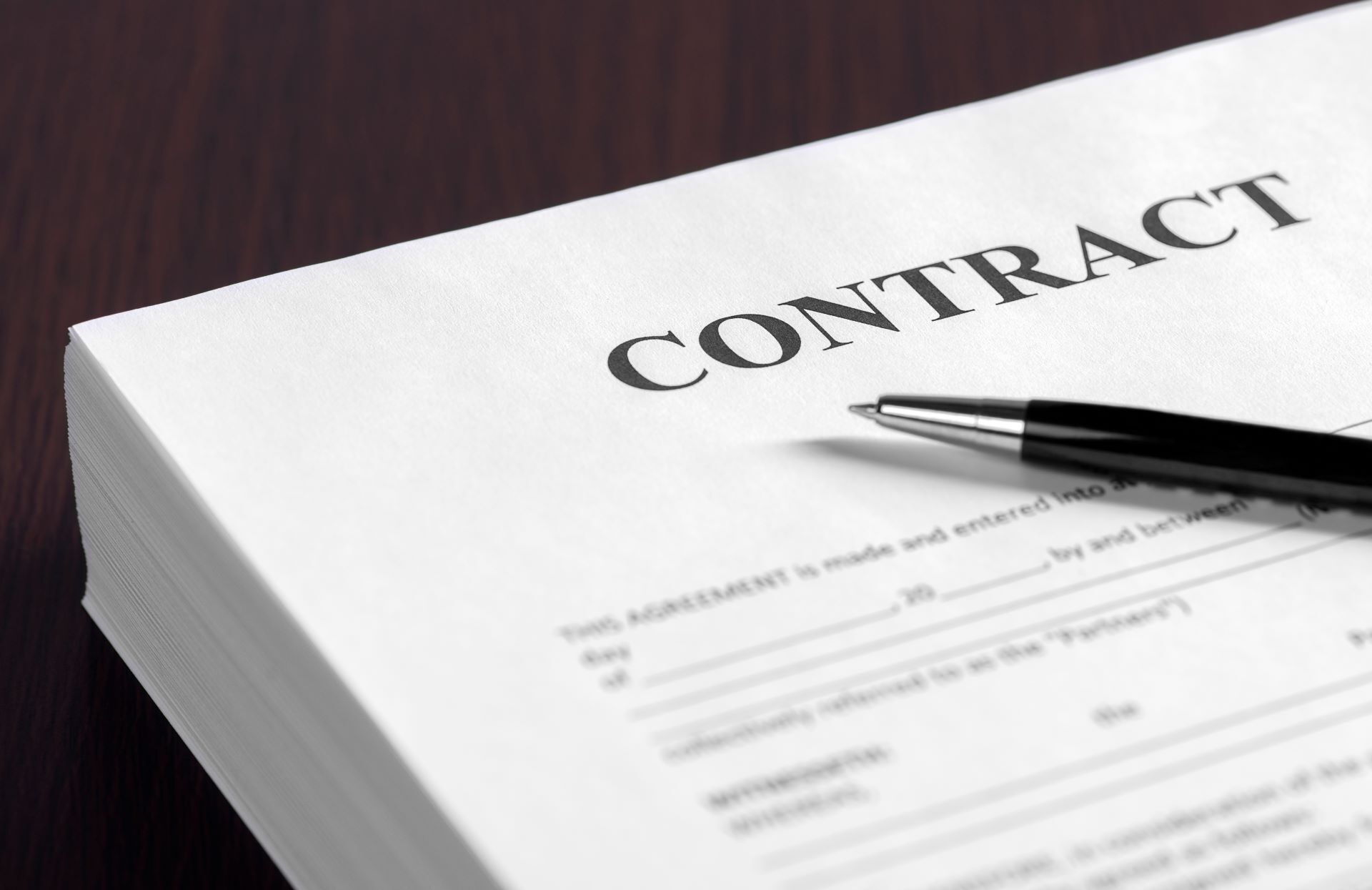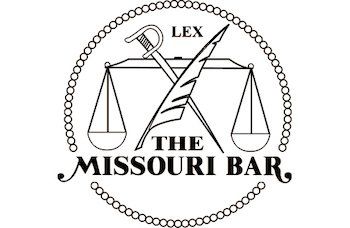Munyan Law Blog
If your name, title, or authority isn’t exactly right, you could be opening the door to lawsuits, unenforceable terms, or even personal liability.

If your name, title, or authority isn’t exactly right, you could be opening the door to lawsuits, unenforceable terms, or even personal liability. These aren’t harmless clerical errors; they are real legal risks that could cost you. As a business attorney, I’ve seen these mistakes sink deals that should have been airtight. Here’s what to watch before you sign.
At Munyan Law, we help businesses prevent these costly mistakes before they happen. As a business attorney, I’ve seen simple signature issues sink deals that should have been airtight.
Why your business needs Munyan Law:
- Protect your contracts from being challenged or voided.
- Avoid personal liability when signing on behalf of a company.
- Make sure authorized signatures are properly executed every time.
- Strengthen your legal position and keep transactions enforceable.
Before you sign, make sure you are signing smart. Let Munyan Law review and safeguard your contracts — so your signature seals the deal, not wrecks it.
1. Use Your Company’s Exact Legal Name — No Guesswork
The Mistake: You list your business as “Smith Consulting” instead of its full legal name, like “Smith Consulting, LLC.”
Why It’s a Problem: If your contract doesn’t name the correct legal entity, someone could argue that your company isn’t actually a party to the deal — or worse, that you are.
What to Do: Look up your company’s name exactly as it appears in the Secretary of State’s records. Include every word, comma, and suffix. Then make sure that’s what goes in the contract. A corporate attorney can easily verify this and help avoid future disputes.
2. Sign Using Your Full Legal Name — Not a Nickname or Abbreviation
The Mistake: The contract lists your name as “Bubba Smith” instead of your full legal name “Thomas J. Smith.”
Why It’s a Problem: The mismatch opens the door to claims that you didn’t sign at all, or that the contract was forged. You don’t want to be defending your own signature in court.
What to Do: Always make sure the contract shows your full legal name, i.e., the one that appears on your ID, corporate filings, or prior contracts. As a business lawyer, I always advise clients to stay consistent across all agreements.
3. Don’t Assume You Have Authority — Prove It
The Mistake: You sign on behalf of the business without confirming you have legal authority.
Why It’s a Problem: If you’re not properly authorized — for example, if you’re a minority shareholder or mid-level manager — the deal might not bind the company. That could mean you have no contract at all.
What to Do: Before you sign, make sure you have been properly authorized by your company to sign this contract. If your company is an LLC, review your operating agreement and member resolutions. If it’s a corporation, review your board resolutions and bylaws. When in doubt, get written confirmation. Your business lawyer will thank you.
4. Make Sure the Company — Not You — Is on the Hook
The Mistake: You sign a business contract without also signing your title.
Why It’s a Problem: That can make you personally liable for the contract. Courts will assume you intended to sign as yourself — and if something goes wrong, your personal assets could be on the line.
What to Do: Double-check the signature block. Make sure it clearly shows the company’s name, and your name and title underneath. For example:
ABC Corp.
By: Thomas J. Smith, President
That extra line may save you from a very expensive mistake. It’s the kind of small detail that your business attorney will always flag.
5. What’s at Stake If You Get This Wrong?
- Unenforceable Contracts: If you name the wrong party or the signer lacked authority, the whole deal may fall apart.
- Personal Liability: If you didn’t clearly sign on behalf of the business, you might be personally responsible.
- Fraud Claims: Mistakes in names or titles can look like misrepresentation.
- Delays and Disputes: Signing issues can hold up closings, payments, or delivery schedules.
- Regulatory Failures: In some industries, a bad signature can kill a license or compliance filing.
- Financing Problems: Investors and lenders need clean contracts. Signature mistakes can raise red flags or kill a deal.
As a corporate attorney, I can tell you this: A sloppy signature block can turn an ironclad contract into a legal minefield.
Bottom Line: Don’t Let a Signature Destroy Your Deal
You fought hard to get the right terms — don’t let one signature mistake wipe it all out. Before you sign anything:
- Double-check your company’s exact legal name
- Use your full legal name, no shortcuts
- Clearly state your official title
- Confirm you have the authority to bind the company
If something feels off, stop immediately and fix it. A few minutes of caution now could save you from months or even years of lawsuits and financial fallout.
Better yet, protect yourself from the start. Let
Munyan Law
review your contracts before you sign. We spot the hidden risks and close the gaps that others miss — so your signature strengthens the deal, not shatters it.













